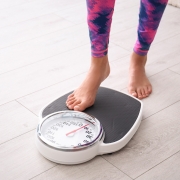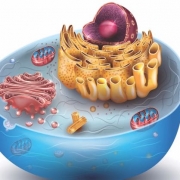The Role of Exercise in Detox: Discover the Truth About Sweating It Out
You’re probably already familiar with many of the oft-cited benefits of exercise. It’s good for your heart, it can help you maintain a healthy weight, it’s good for your lungs, and the list goes on. It seems as though scientists are constantly uncovering new ways exercise can help you keep your body healthy and happy.
Detoxing and cleanses are hot topics in healthy living. And, naturally, people have started to explore the ties between exercise and the body’s detox processes. There’s a lot of information kicking around the internet on the subject. You may have encountered some already. A portion of this information is rooted in credible, scientific research, but a lot of it comes from less-credible sources.
The trick is sorting the facts from the fiction. That’s where the advice below comes in. Keep reading to learn all about the role exercise plays—and doesn’t play—in your body’s detox processes.
What is Detoxing Anyway? Learn the Basics
Detoxing was initially very specific, only talking about removing drugs, alcohol, or poison. In recent years, however, the term has been extended to the removal of any toxins from the body—whether they’re alcohol, chemicals, or bodily waste.
Through the combined effort of your liver, kidneys, and intestines, your body removes toxins from itself every day of your life. These processes are natural, and, for the most part, there’s not much you can do to change them.
Most detox tips and tricks are based on the idea that your body needs a little extra push to fully remove toxins. There’s a lot of pseudoscience out there, so be sure to complete your due diligence. (More on that here!)
The Science Behind the Role of Exercise in Detox
Where cardio, weight lifting, or any of your other favorite workouts fit into the detox picture depends on who you ask.
Some exercise routines are touted as detox workouts—meaning they somehow facilitate the better or more efficient removal of toxins from your body. Others claim that as you work up a sweat, you release toxins out through your pores.
The science behind these claims is shaky.
But here’s what science does tell us: exercise can help your body detox—by helping maintain liver and kidney health. It’s all about taking care of your body’s natural defenses and processes.
Exercise also has a positive impact on one of your body’s other defenses against toxins: the lymphatic system. The two parts of this important system are lymphatic vessels and lymph nodes. Together, they send lymph fluid—which helps you maintain healthy immunity and helps protect you from other harmful substances—throughout your body. Regular exercise has been shown to help increase the body’s circulation of lymph fluid, helping you flush out toxins and bacteria more effectively.
A Fun Fact About the Lungs and Detox
With every breath, your lungs help detox your body by expelling carbon dioxide. This gas is a toxic byproduct of energy metabolism. So the more you exercise, the more carbon dioxide your lungs have to remove.
Don’t worry though, regular exercise (and not smoking) is one of the most important things you can do to optimize the strength, efficiency, and overall health of your lungs. The work they go through to pull in extra oxygen and expel carbon dioxide during exercise will only help you in the long run.
Can You Sweat Out Toxins?
If you’ve ever exercised, you’ve worked up a sweat. Heck, even if you’ve never exercised, you’ve probably been uncomfortably sweaty at some point. It happens. Sweat is one of your body’s primary temperature regulation mechanisms. If your body feels itself overheating, it releases sweat to cool you back down.
But what if sweat did more? What if your body’s cooling system also helped purge your system of toxins? It’s an appealing idea and seems plausible enough. But unfortunately, it is mostly wishful thinking.
Although there are a few studies that suggest sweat may contain heavy metals and other toxins, the general consensus is that sweating does what it is meant to, i.e. cools your body, and not much else.
At the end of the day, your sweat is mostly water with a little bit of salt.
The Key to Detox is a Happy Liver and Exercise Can Help
Sweating might not be a detox mechanism, but don’t write off exercise just yet. There are a number of other ways a good workout can help your body take care of toxins. And chief among these is keeping your liver healthy.
Your liver is like a pool filter—it sifts the bad from the good. Then it breaks down and disposes of the unwanted debris. Sure, this is a simplification of the process, but it gets the point across. The liver is the single most important piece of your body’s detoxing puzzle.
Here’s another fact about the liver: it works hard. And it works a lot. You can make your liver’s job easier by drinking in moderation, maintaining a healthy weight, and eating healthy. But it will naturally experience some wear and tear. This often takes the form of fat build up in the liver. (Fat build up isn’t an immediate health risk, but can lead to scarring of the liver known as fibrosis and eventually cirrhosis.)
This is where exercise comes into play.
In a study of patients with nonalcoholic fatty liver disease—a health condition commonly associated with obesity—regular exercise was shown to reduce the amount of fat on the liver. This held true for aerobic exercise (jogging, biking, etc.) and resistance training (weight lifting, body weight exercises, etc.). Additionally, patients saw a reduction in liver fat regardless of weight loss.
So what does this mean? Put simply, any exercise routine you choose will help keep your liver healthy—so long as you’re doing it regularly. It doesn’t matter if you choose Pilates, cycling, swimming, or free-weight training. And even if you’re not losing weight, your liver is still being supported.
What About the Kidneys and Exercise?
The liver does a lot of your body’s detoxing legwork, but it’s not a one-organ show. Your kidneys are also involved in the process—especially when it comes to filtering liquids. As blood flows from your liver to the kidneys, your other important detox organs remove urea and other waste from the blood. These waste products are then expelled from your body via urine.
It’s natural for your kidneys to be impacted as you age, just like any other part of your body. And like the rest of your body, the better you care for yourself and your health, the healthier your kidneys will stay.
Just like the liver, your kidneys are affected by your lifestyle choices. The harder you make them work, the quicker they will be negatively impacted. On the flip side, some studies have linked regular exercise to healthier kidneys. So in other words, the more you exercise, the longer you can keep your kidneys working at their best.
The Role of Exercise in Mental Detoxing
One form of detoxification that is often overlooked is mental detox. Over the course of the day, you encounter countless stressors—some bigger than others. And these stressors can pile up from day to day, adding to your baseline level of stress and anxiety.
People cope with stress in a variety of ways, but one of the most common forms of mental detox is exercise. While you are active, your body naturally releases chemicals called endorphins that relieve stress and elevate your mood. (If you’ve ever heard the phrase “runner’s high,” this is what’s being described.)
Start Actively Supporting Your Body’s Natural Defenses Against Toxins
At the end of the day, there’s never a quick fix for detoxing your body. There’s no miracle workout that will help rid your system of toxins. No amount of sweating will keep your body free of unwanted substances. (But all that exercise might dehydrate you, so be sure to drink plenty of water!)
Although no quick fix exists, there is a simple one: exercise regularly and maintain a healthy diet. This tried-and-true approach will help keep your body’s natural toxic defenders—your kidneys and liver—working smoothly.















